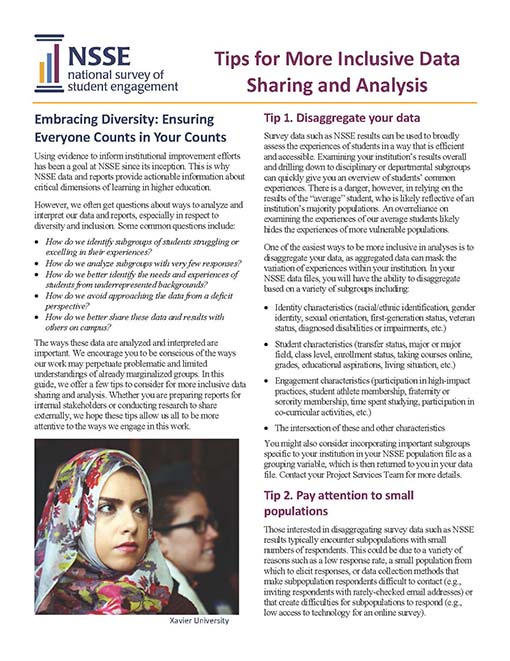The Inclusiveness and Engagement with Cultural Diversity (ICD) module addresses a timely and important topic in higher education. A year fraught with political and racial tension and the complexities of a global pandemic has made us keenly aware of the need for institutional agents to create safer and supportive environments for racially and ethnically minoritized students. Results from this module provide information about students’ exposure to inclusive teaching practices and intercultural learning; perceptions of institutional commitment regarding diversity; and participation in diversity-related programming and coursework, and are intended to be helpful to efforts to create more equitable and inclusive campus communities.
The NSSE ICD module examines environments, processes, and activities that reflect the engagement and validation of cultural diversity and promote a greater understanding of societal differences. Questions explore students’ exposure to inclusive teaching practices and intercultural learning; perceptions of institutional values and commitment regarding diversity; and participation in diversity-related programming and coursework. Since 2017, over 600 institutions have elected to include the module as part of their NSSE administration recognizing the important and necessary work of creating more inclusive campus environments. Given current concerns about racial injustice, we set out to more systematically study how these campuses utilized results from this optional module.





